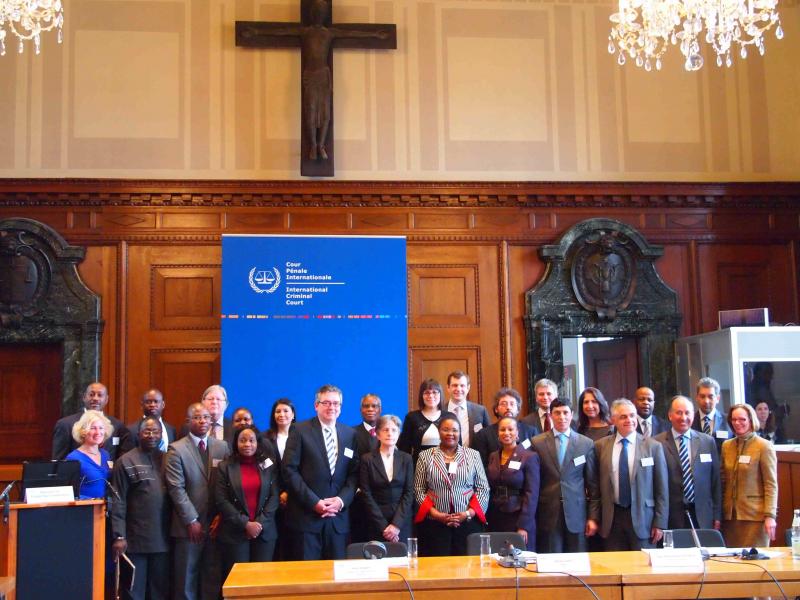ICC Seminar on Building Legal Expertise and Fostering Cooperation, March 2013 in Nuremberg
Discussion details
Complementarity at the core of EU support to the ICC
A high level International Criminal Court Seminar for Fostering Cooperation was organised in March in the city of Nuremberg, Germany. The Head of Unit of DEVCO B1 Jean-Louis Ville spoke about mainstreaming the fight against impunity in development cooperation in the context of complementarity. He emphasized that the Rome Statute system and the ICC have a central role in fighting impunity and consequently, for stability and development. The EU is the largest donor supporting justice and rule of law reform and plays a central role in the realisation of the principle of complementarity in practice by supporting programmes with a focus on criminal justice worldwide.
To make the principle of complementarity operational the EU promotes the fight against impunity in development cooperation and technical assistance programmes to strengthen justice and the rule of law. The objectives are reinforced by the EU through strengthening national justice systems, enforcement of sentences as well as by improving detention conditions and capacity of national governments to manage witness protection programmes.A new joint staff working document by the European Commission and the EEAS, a toolkit on the principle of complementarity, was recently disseminated.
The toolkit seeks to bridge the gap between international justice and national justice systems and contributes to ending impunity of the perpetrators of the most serious crimes. It offers concrete suggestions on how to make the principle of complementarity work at the country level in practice while respecting the Rome Statute. In addition, the toolkit puts complementarity into a wider context, highlights the relevant areas of intervention and provides operational guidance to EU staff and the Member States. Joint efforts where donors, international organisations, civil society organisations and Member States all play an important role will increase the effectiveness of fighting impunity and implementing the principle of complementarity.
The challenges of asset freezing, identification and tracing and witness protection faced by the ICC
The ICC has fifteen ongoing investigations in seven different countries. Cooperation with countries is crucial for facilitating access to evidence materials and protection of victims. Once cooperation is established, the Office of the Prosecutor (OTP) can act as a first responder in the country to collect and share information. The ICC is increasingly looking into technology-driven investigation mechanisms for reallocation of victims which requires active cooperation with states.
Linking the existing funds with the committed crimes is one of the main challenges of asset freezing. The presumption of innocence has to be respected and national jurisdiction needs to entail a legal framework for cooperation for freezing assets of the person under investigation. The process of finding a legal base for freezing assets is ongoing at ICC level. The main challenges for freezing assets are creating internal procedures to implement requests to safeguard assets, establishing specialised national investigation teams and structures as well as facilitating direct access to databases of bank accounts.
Witness protection programmes are measures of last resort. In relation to witness protection, the OTP creates a protection strategy for different types of witnesses and tackles the individual and general risk assessment situations. One of the challenges isthat the ICC does not have access to national intelligence systems to assess particular situations and relies on other countries to police. Other challenges include obtaining reliable and relevant security information, meeting witnesses’ expectations, matching protection with realistic life solutions, lack of temporary and long-term destinations as well as mainstreaming confidentiality.
Making a separate assessment of the situation of women is important as they face multiple forms of discrimination and are often specifically targeted by perpetrators of crime. Thus, increased efforts for mainstreaming gender should be made.
Conclusion
The seminar provided several ideas on the future knowledge-transfer towards countries where the ICC is involved in. With the new EU toolkit on complementarity Support to Justice and the Rule of Law many initiatives for closing the gap between international and national justice will take place in the future. The European Union will continue supporting the ICC and playing an active role in the process of implementing the principle of complementarity and ending impunity.

Log in with your EU Login account to post or comment on the platform.